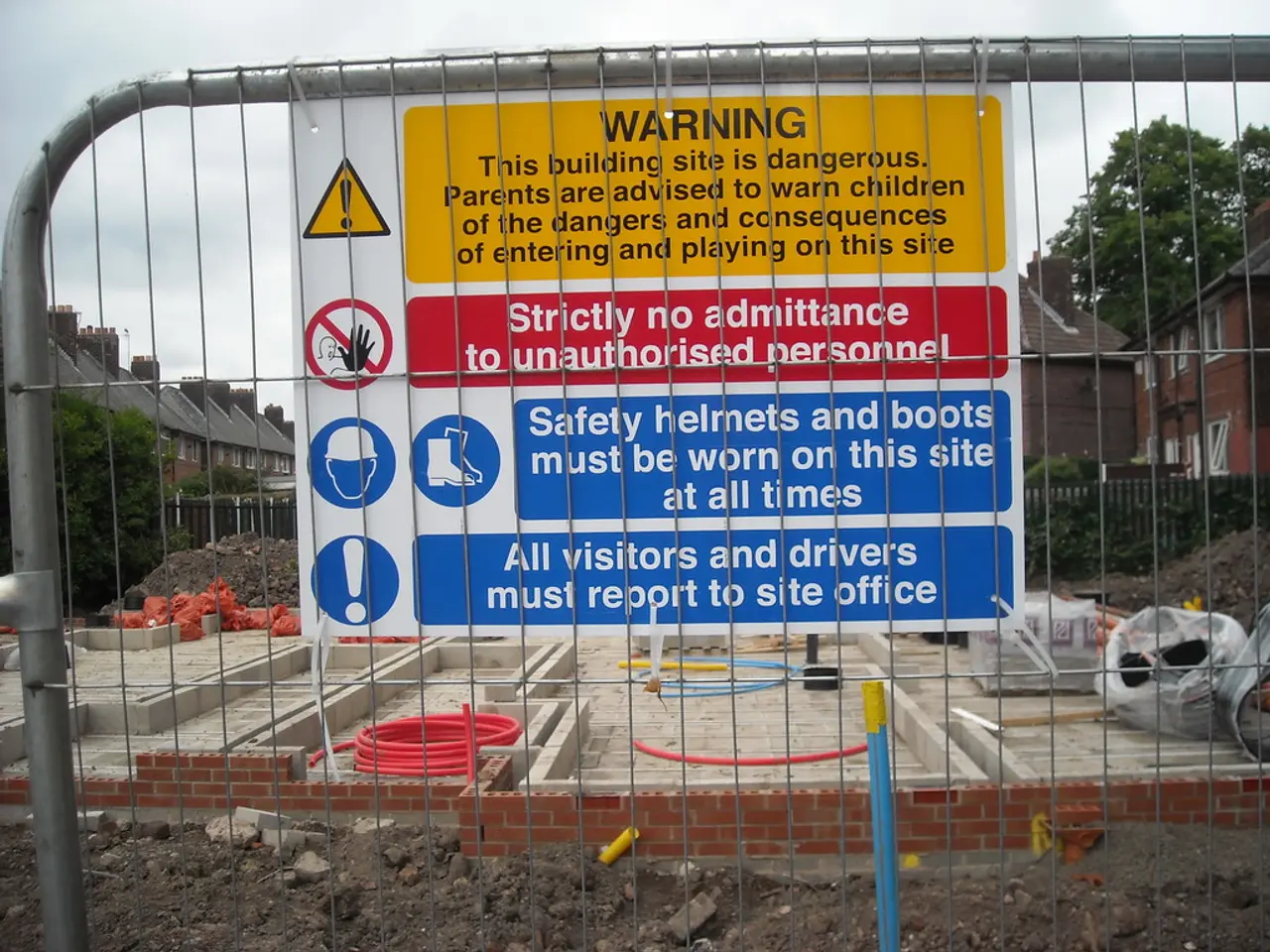Advancements in the Planning Bill: Progress for nature, yet not the significant upgrade we're aiming for
The Planning and Infrastructure Bill, currently making its way through the House of Lords, has been met with criticism from environmental organizations, including the Suffolk Wildlife Trust. The Bill, they argue, fails to adequately address the issue of unmitigated environmental damage and who would bear the cost in such a situation.
The Government needs to uphold the polluter pays principle, which states that the person responsible for damaging the environment is responsible for paying the cost of remediation. However, the Bill risks undermining this principle through the inclusion of a viability clause that allows developers to argue that the cost of remediating environmental harm through an Environmental Delivery Plan (EDP) is too high.
Rupert Masefield, Planning and Advocacy Manager at Suffolk Wildlife Trust, continues to push for essential changes to the bill for nature. The Trust's position on preventing the Bill from weakening legal protections for nature highlights three main actions the UK Government should take:
- Explicitly support and enforce the mitigation hierarchy, ensuring that development avoids irreversible harm to biodiversity rather than relying too much on offsetting or remediation measures.
- Safeguard irreplaceable habitats such as ancient woodlands and lowland fens by granting them explicit legal protection within the Bill itself, rather than relying on weaker, changeable protections in the National Planning Policy Framework; without explicit protection, these habitats remain at risk.
- Uphold the polluter pays principle, ensuring that developers fully bear the costs for any environmental damage caused by their activities and that EDPs lead to genuine overall environmental improvement, not just mitigation or compensation that allows damage to important sites.
The Trust and allied environmental groups have expressed concerns that the Bill’s current wording and Government amendments fail to meet these standards. They argue the Bill weakens protections for Sites of Special Scientific Interest and Special Areas of Conservation, leaving decisions to the Secretary of State for Housing with insufficient Parliamentary scrutiny, enabling potential development on these protected sites.
The Government has tabled amendments to the Planning and Infrastructure Bill in the House of Lords to introduce safeguards for nature. The amendments strengthen the requirement for evidence that EDPs will deliver an 'overall material improvement' for the environmental feature in question. However, the Trust and others argue that these amendments do not go far enough.
The Trust wants the Government to explicitly incorporate the mitigation hierarchy into the Bill requirements, provide clear, statutory legal protection for irreplaceable habitats within the Bill, ensure the polluter pays principle is fully enforced, and maintain Parliamentary oversight over environmental decisions to avoid unchecked granting of permission to develop protected sites.
Without these measures, the Trust warns the Bill risks being a backward step for nature conservation in England. The Government is urged to provide more detailed criteria for assessing the effectiveness of EDPs and to safeguard irreplaceable habitats, such as ancient woodlands, fen wetlands, and ancient chalk grasslands, which cannot be replaced or recreated if lost or damaged.
The proposed changes are a response to months of campaigning by environmental organizations. Despite the proposed amendments, the bill still leaves room for development to potentially cause avoidable harm to nature without fully compensating for it. The amendments aim to address aspects of the bill that the Office for Environmental Protection described as 'environmentally regressive'. However, the viability clause in the Bill still poses a risk to the polluter pays principle.
In summary, to respond to Suffolk Wildlife Trust’s stance you should look for proposals making the mitigation hierarchy mandatory and rigorously applied, explicit Clause(s) safeguarding irreplaceable habitats within the Bill’s text, clear enforcement mechanisms for polluter pays, and Parliamentary scrutiny mechanisms over planning decisions affecting protected nature sites. Without these measures, the Trust warns the Bill risks being a backward step for nature conservation in England.
- Failure to explicitly support and enforce the mitigation hierarchy in the Planning and Infrastructure Bill could lead to irreversible harm to biodiversity, as it may result in excessive reliance on offsetting or remediation measures instead of avoiding development that causes such harm.
- The polluter pays principle should be upheld in the Bill, ensuring that developers fully bear the costs for any environmental damage caused by their activities and that Environmental Delivery Plans (EDPs) result in genuine overall environmental improvement, not just mitigation or compensation that allows damage to important sites.







